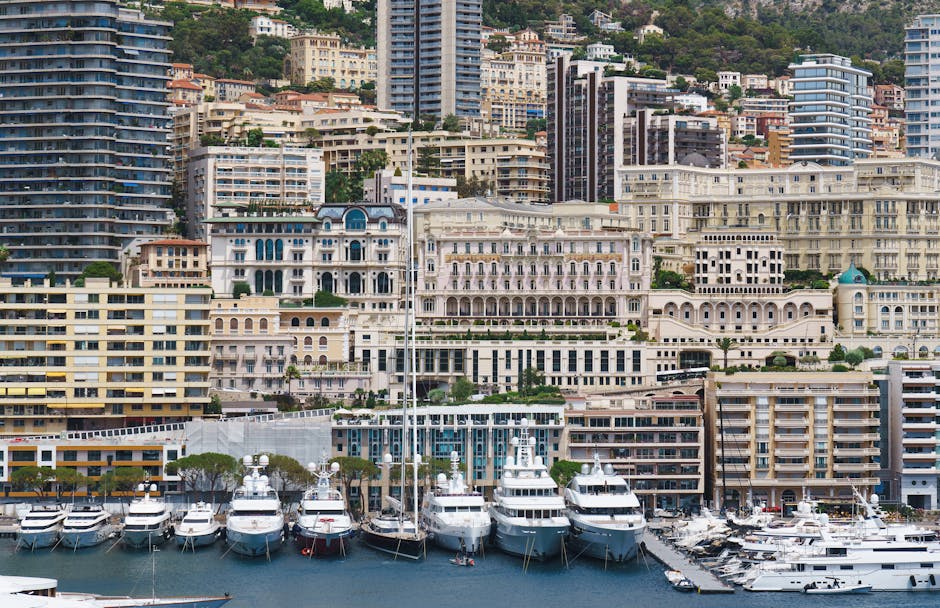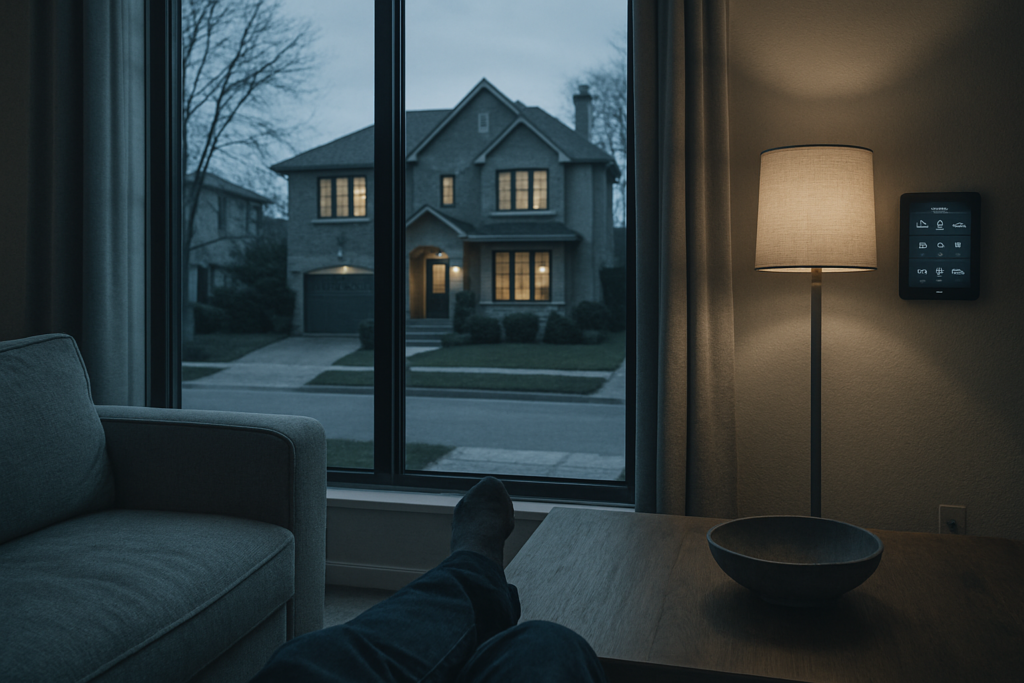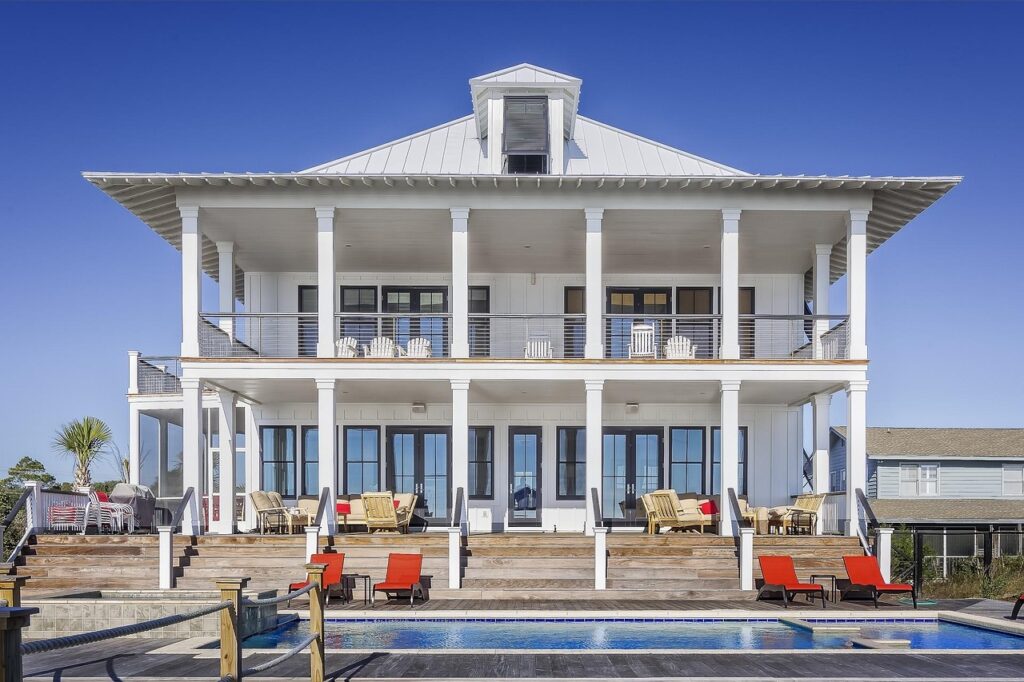In today’s interconnected world, the dynamics of the global economy play a pivotal role in shaping various sectors, including the luxury housing market. As I delve into the intricate web of how global economic trends are influencing the realm of luxury real estate, it becomes evident that the shifts in economies across continents have a profound impact on high-end property markets.
From fluctuating currency values to geopolitical developments, every economic trend sends ripples through the luxury housing sector, affecting everything from pricing strategies to buyer preferences. As I navigate through the nuances of these trends, I uncover the underlying forces that drive the evolution of luxury real estate landscapes worldwide.
Join me on a journey through the intersection of global economics and opulent living, where I unravel the compelling narrative of how economic trends are sculpting the luxurious abodes coveted by the elite.
Impact of Global Economic Trends on Luxury Housing Market
Exploring the realm of luxury housing unveils a profound entanglement with global economic trends. The strategic interplay of economic dynamics significantly influences the pulse of the luxury real estate market.
Nations across the world experience the ebb and flow of economic forces that meticulously sculpt the landscape of opulent living spaces. The confluence of macroeconomic shifts and regional market conditions orchestrates a symphony that resonates through the corridors of luxury real estate.
As I delve into the intricate fabric of economic trends, the nuanced dance between supply and demand becomes apparent. Currency fluctuations, a stalwart of the global economic stage, perform a delicate balancing act that reverberates within the luxury housing sphere.
The sensitivities of pricing strategies within this domain are finely attuned to the rhythm of exchange rates, shaping the investment decisions of affluent buyers seeking exclusive properties in coveted locations.
Moreover, geopolitical developments wield a considerable influence on the luxury housing market, dictating shifts in buyer preferences and investment patterns. The ripple effects of geopolitical events cascade through the corridors of high-end real estate, redirecting the flow of capital towards emerging markets or established luxury destinations.
As economic landscapes evolve, so too do the aspirations of affluent individuals seeking to anchor their lifestyles in opulent residential sanctuaries.
In this intricate tapestry of economic trends, the allure of luxury housing emerges as a barometer of global economic vitality and stability. The symbiotic relationship between economic trajectories and the luxury real estate market underscores the resonance of wealth and prosperity in shaping the architectural landscapes that epitomize opulence and refinement.
As economic horizons shift and global dynamics continue to evolve, the luxury housing market remains a canvas where the brushstrokes of economic trends paint a vivid portrait of affluent living in a world defined by opulence and extravagance.
Influence of Economic Growth on Luxury Real Estate
In examining the influence of economic growth on the luxury real estate sector, it’s evident that emerging markets play a pivotal role in driving demand for opulent housing. These markets, characterized by rapid economic development, urbanization, and an increasing number of high-net-worth individuals, create a robust appetite for luxury properties.
Emerging Markets and Luxury Housing Demand
In these burgeoning economies, such as parts of Asia and the Middle East, the rising affluence of the population translates into a surge in demand for exclusive residential offerings. The allure of luxury amenities, prestigious addresses, and high-end finishes resonates with discerning buyers seeking to showcase their success and status through opulent real estate acquisitions.
Economic Growth Dynamics and Price Escalation
As economic prosperity accelerates in regions like China and India, the luxury housing market experiences a corresponding escalation in prices. The correlation between economic growth and property value appreciation is palpable, as affluent individuals capitalize on booming economies to diversify their investment portfolios with high-end real estate assets.
Foreign Direct Investment and Luxury Developments
Moreover, economic growth stimulates foreign direct investment in luxury real estate projects, with international developers and investors flocking to capitalize on the burgeoning markets. This influx of capital fuels the development of upscale residential properties, contributing to the transformation of skylines and the creation of iconic architectural masterpieces in major metropolitan areas.
Economic Indicators Shaping Luxury Real Estate Trends
Key economic indicators, such as GDP growth rates, income levels, and consumer confidence indices, serve as barometers for the health of the luxury housing market. As economies thrive and wealth accumulates, the demand for exclusive properties surges, reshaping the landscape of luxury real estate to cater to the affluent elite’s evolving preferences and lifestyle aspirations.
Technological Advancements in Luxury Real Estate Sector
Continuing with the exploration of factors shaping the luxury housing market, technological advancements play a pivotal role in revolutionizing the sector. Innovations in real estate technology have not only enhanced the overall customer experience but have also elevated the standards of luxury living across the globe.
- Smart Home Integration: Technology has enabled the integration of smart home systems that offer unprecedented levels of convenience and control to homeowners. From automated lighting and temperature control to advanced security features, smart homes redefine luxury by combining elegance with functionality.
- Virtual Reality Tours: Virtual reality (VR) tours have transformed the way properties are marketed and showcased to prospective buyers. This immersive technology allows potential investors to experience high-end residential spaces remotely, offering a realistic view of the property without physically visiting the site.
- Blockchain in Real Estate Transactions: The utilization of blockchain technology in real estate transactions ensures greater transparency, security, and efficiency. Smart contracts powered by blockchain simplify the buying and selling process of luxury properties, reducing the need for intermediaries and expediting transactions.
- Energy-Efficient Solutions: Sustainable and energy-efficient technologies have become integral to luxury real estate developments. Incorporating solar panels, smart appliances, and green building materials not only enhances the eco-friendliness of properties but also appeals to environmentally-conscious buyers seeking sustainable living options.
- Artificial Intelligence (AI): AI-driven solutions are revolutionizing property management and personalized customer services in the luxury real estate sector. From predictive analytics for pricing strategies to chatbots for customer inquiries, AI enhances operational efficiency and elevates the overall experience for buyers and residents.
Embracing technological advancements is imperative for luxury real estate developers and agents to stay competitive in a rapidly evolving market. The seamless integration of technology not only enhances the allure of luxury properties but also caters to the ever-changing demands and expectations of affluent buyers seeking the epitome of modern living experiences.
Sustainable Practices in the Luxury Housing Market
Discussing sustainable practices in the luxury housing market is crucial in the current real estate landscape. As sustainability continues to be a focal point globally, luxury developers and homeowners are increasingly embracing eco-friendly initiatives that not only reduce environmental impact but also add value to high-end properties.
Implementing sustainable features not only aligns with growing societal awareness of environmental issues but also appeals to eco-conscious buyers seeking luxurious yet environmentally responsible homes. Incorporating sustainable materials in construction, such as reclaimed wood, recycled glass, or energy-efficient insulation, is becoming a standard practice in luxury real estate projects.
These materials not only enhance the aesthetic appeal of the property but also showcase a commitment to reducing carbon footprint and promoting ecological conservation. By using eco-friendly materials, luxury developers can attract discerning buyers who value sustainability and seek residences that reflect their environmental ethos.
Moreover, integrating renewable energy sources like solar panels, geothermal heating systems, or wind turbines is gaining prominence in the luxury housing market. As more affluent buyers prioritize energy efficiency and cost savings, sustainable energy solutions have become a significant selling point for luxury properties.
By harnessing renewable energy, homeowners can enjoy reduced utility bills, lower reliance on traditional energy grids, and contribute to a greener environment, positioning their residences as sustainable and innovative living spaces. In addition to sustainable materials and energy-efficient systems, luxury properties are increasingly incorporating smart technologies to optimize energy usage, enhance comfort, and streamline daily living.
Smart home features like automated lighting, thermostats, and security systems not only improve convenience for residents but also contribute to energy conservation and environmental sustainability. By blending luxury amenities with sustainable practices, developers can cater to the evolving preferences of upscale buyers who prioritize both opulence and eco-conscious living.
Sustainable practices are no longer just a trend but a fundamental aspect of the luxury housing market, shaping the future of high-end real estate. Embracing sustainability not only differentiates luxury properties in a competitive market but also reflects a commitment to environmental responsibility and long-term value.
As the demand for eco-friendly and energy-efficient homes continues to rise, incorporating sustainable initiatives is essential for luxury developers looking to meet the expectations of affluent buyers and contribute to a more sustainable future in the realm of luxury housing.





